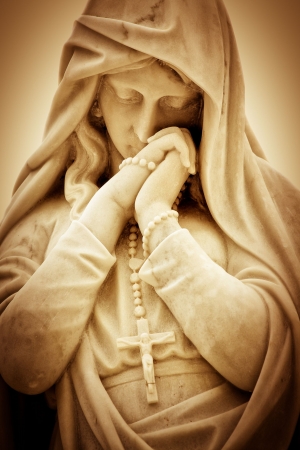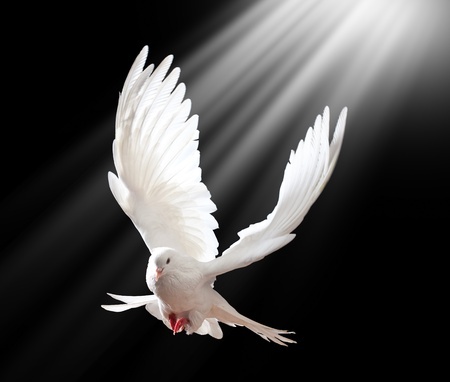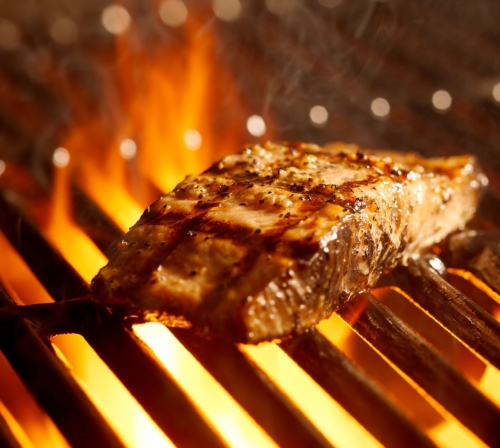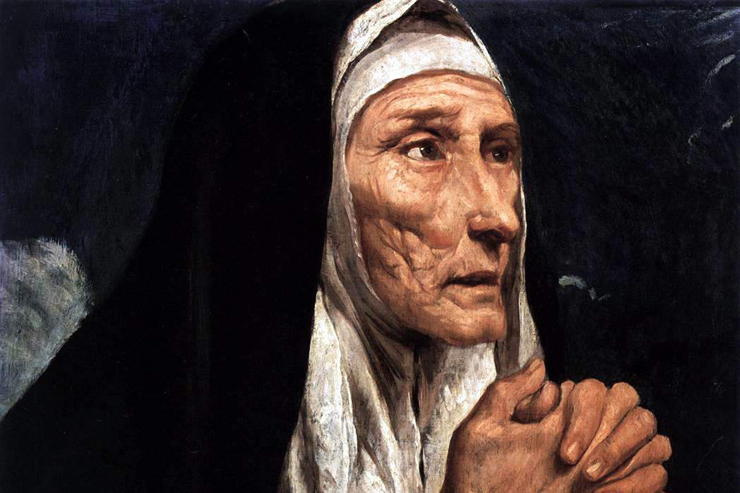May 2017

Volume II / Issue 14 / May 2017


From the Editorial Desk:
Welcome to the 14th edition of the Olive Tree. There are quite a few interesting things to read this month. Because it is the month of May. Our team of writers came up with articles that focuses on women saints!
Well it is the month dedicated to Mary our blessed Mother! But also, here in the United States, we have the holiday of Mother's Day which falls on the 14th of May.
As I was thinking through how I wanted this issue to be laid out, a friend of mine reminded me of something concerning the Litany of the Saints.
Have you ever noticed who are the first two women mentioned in the Litany? First, you have the Holy Virgin Mary, Mother of God. Then there is a whole list of Angels, Patriarchs, Apostles and Evangelists, Disciples of the Lord, holy Innocents, Martyrs, Bishops and Confessors, Holy Doctors, Priests and Levites, Monks and Hermits. Finally we come to a list of Virgins, Widows, and Holy saints of God. Which leads us to the second woman mentioned by name. And that would be St. Mary Magdalene!
Isn't it interesting that the first Saint would be Mary our Mother. One who grew up in innocency. And was raised in the Temple. And the second Saint is one, who from tradition, we are told was a prostitute! What an encouragement to know that the best of the best and the worst of the worst can become Saints! Not only the best and not only the worse but all those woman in between! There are the mothers who were faithful to raising there children, there are the old ladies in the retirement homes who spend hours praying. There are the wives who have stayed faithful in bad situations. There are drug addicts, alcoholics, etc etc. Many women who have come from all kind of situations. But when they committed their life totally to God they grew into Saints. Saints that we will never know about until heaven, when all is revealed!
So with that in mind, we start off with an article that will help you to understand more about Mary the Mother of the Church! You will find ton of scripture reference to go with it. From there one of our staff writers has written a beautiful devotion of how Mary Magdalene can be an example to us.
Last but not least is a inspirational and encouraging article written for those of us who have family members who are away from the Church. A devotion on Saint Monica, the mother of St. Augustine.
And if that is not enough for you, there are videos to watch, books you can read, Catechism Lessons, Life Principles, and even the Pope giving some great thoughts!
By the time you are done reading this issue, you might find yourself hungry! Never fear! We got a recipe for some great smoked salmon for you to munch on.
Enjoy!


Understanding Who Mary Queen Of Heaven Is.
I. The Uniqueness of Mary as the Mother of God
Genesis 3:15 - we see from the very beginning that God gives Mary a unique role in salvation history. God says "I will put enmity between you and the woman, between your seed and her seed." This refers to Jesus (the "enmity") and Mary (the "woman"). The phrase "her seed" (spermatos) is not seen elsewhere in Scripture.
Genesis 3:15 / Revelation 12:1 - the Scriptures begin and end with the woman battling satan. This points to the power of the woman with the seed and teaches us that Jesus and Mary are the new Adam and the new Eve.
John 2:4, 19:26 - Jesus calls Mary "woman" as she is called in Genesis 3:15. Just as Eve was the mother of the old creation, Mary is the mother of the new creation. This woman's seed will crush the serpent's skull.
Isaiah 7:14; Matthew 1:23 - a virgin (the Greek word used is "parthenos") will bear a Son named Emmanuel, which means "God is with us." John 1:14 - God in flesh dwelt among us. Mary is the Virgin Mother of God.
Matthew 2:11 - Luke emphasizes Jesus is with Mary His Mother, and the magi fall down before both of them, worshiping Jesus.
Luke 1:35 - the child will be called holy, the Son of God. Mary is the Mother of the Son of God, or the Mother of God (the "Theotokos").
Luke 1:28 - "Hail Mary, full of grace, the Lord is with you." These are the words spoken by God and delivered to us by the angel Gabriel (who is a messenger of God). Thus, when Catholics recite this verse while praying the Rosary, they are uttering the words of God.
Luke 1:28 - also, the phrase "full of grace" is translated from the Greek word "kecharitomene." This is a unique title given to Mary, and suggests a perfection of grace from a past event. Mary is not just "highly favored." She has been perfected in grace by God. "Full of grace" is only used to describe one other person - Jesus Christ in John 1:14.
Luke 1:38 - Mary's fiat is "let it be done to me according to thy word." Mary is the perfect model of faith in God, and is worthy of our veneration.
Luke 1:42 - "Blessed are you among women, and blessed is the fruit of your womb, Jesus." The phrase "blessed are you among women" really means "you are most blessed of all women." A circumlocution is used because there is no superlative in the Greek language. Note also that Elizabeth praises Mary first, and then Jesus. This is hyperdulia (but not latria which is worship owed to God alone). We too can go through Mary to praise Jesus. Finally, Catholics repeat these divinely inspired words of Elizabeth in the Rosary.
Luke 1:43 - Elizabeth's use of "Mother of my Lord" (in Hebrew, Elizabeth used "Adonai" which means Lord God) is the equivalent of "Holy Mary, Mother of God" which Catholics pray in the Rosary. The formula is simple: Jesus is a divine person, and this person is God. Mary is Jesus' Mother, so Mary is the mother of God (Mary is not just the Mother of Jesus' human nature - mothers are mothers of persons, not natures).
Luke 1:44 - Mary's voice causes John the Baptist to leap for joy in Elizabeth's womb. Luke is teaching us that Mary is our powerful intercessor.
Luke 1:46 - Mary claims that her soul magnifies the Lord. This is a bold statement from a young Jewish girl from Nazareth. Her statement is a strong testimony to her uniqueness. Mary, as our Mother and intercessor, also magnifies our prayers.
Luke 1:48 - Mary prophesies that all generations shall call her blessed, as Catholics do in the "Hail Mary" prayer. What Protestant churches have existed in all generations (none), and how many of them call Mary blessed with special prayers and devotions?
Ephesians 1:1; Philippians. 1:1; Colossians 1:2 - the word "saints" (in Hebrew "qaddiysh") means "holy" ones. So Mary is called Holy, the greatest Saint of all.
Luke 2:35 - Simeon prophesies that a sword would also pierce Mary's soul. Mary thus plays a very important role in our redemption. While Jesus' suffering was all that we needed for redemption, God desired Mary to participate on a subordinate level in her Son's suffering, just as he allows us to participate through our own sufferings.
Luke 2:19,51 - Mary kept in mind all these things as she pondered them in her heart. Catholics remember this by devoting themselves to Mary's Immaculate Heart and all the treasures and wisdom and knowledge contained therein.
II. Mary - the Immaculate Ark of the New Covenant
Exodus 25:11-21 - the ark of the Old Covenant was made of the purest gold for God's Word. Mary is the ark of the New Covenant and is the purest vessel for the Word of God made flesh.
2 Samuel 6:7 - the Ark is so holy and pure that when Uzzah touched it, the Lord slew him. This shows us that the Ark is undefiled. Mary the Ark of the New Covenant is even more immaculate and undefiled, spared by God from original sin so that she could bear His eternal Word in her womb.
1 Chronicles 13:9-10 - this is another account of Uzzah and the Ark. For God to dwell within Mary the Ark, Mary had to be conceived without sin. For Protestants to argue otherwise would be to say that God would let the finger of Satan touch His Son made flesh. This is incomprehensible.
1 Chronicles 15 and 16 - these verses show the awesome reverence the Jews had for the Ark - veneration, vestments, songs, harps, lyres, cymbals, trumpets.
Luke 1:39 / 2 Samuel 6:2 - Luke's conspicuous comparison's between Mary and the Ark described by Samuel underscores the reality of Mary as the undefiled and immaculate Ark of the New Covenant. In these verses, Mary (the Ark) arose and went / David arose and went to the Ark. There is a clear parallel between the Ark of the Old and the Ark of the New Covenant.
Luke 1:41 / 2 Samuel 6:16 - John the Baptist / King David leap for joy before Mary / Ark. So should we leap for joy before Mary the immaculate Ark of the Word made flesh.
Luke 1:43 / 2 Samuel 6:9 - How can the Mother / Ark of the Lord come to me? It is a holy privilege. Our Mother wants to come to us and lead us to Jesus.
Luke 1:56 / 2 Samuel 6:11 and 1 Chronicles 13:14 - Mary / the Ark remained in the house for about three months.
Revelations 11:19 - at this point in history, the Ark of the Old Covenant was not seen for six centuries (see 2 Maccabees 2:7), and now it is finally seen in heaven. The Jewish people would have been absolutely amazed at this. However, John immediately passes over this fact and describes the "woman" clothed with the sun in Revelations 12:1. John is emphasizing that Mary is the Ark of the New Covenant and who, like the Old ark, is now worthy of veneration and praise. Also remember that Revelations 11:19 and Revelations 12:1 are tied together because there was no chapter and verse at the time these texts were written.
Revelations 12:1 - the "woman" that John is describing is Mary, the Ark of the New Covenant, with the moon under her feet, and on her head a crown of twelve stars. Just as the moon reflects the light of the sun, so Mary, with the moon under her feet, reflects the glory of the Sun of Justice, Jesus Christ.
Revelations 12:17 - this verse tells us that Mary's offspring are those who keep God's commandments and bear testimony to Jesus. This demonstrates, as Catholics have always believed, that Mary is the Mother of all Christians.
Revelations 12:13-16 - in these verses, we see that the devil still seeks to destroy the woman even after the Savior is born. This proves Mary is a danger to satan, even after the birth of Christ. This is because God has given her the power to intercede for us, and we should invoke her assistance in our spiritual lives.
III. Mary is our Mother and Queen of the New Davidic Kingdom
John 19:26 - Jesus makes Mary the Mother of us all as He dies on the Cross by saying "behold your mother." Jesus did not say "John, behold your mother" because he gave Mary to all of us, his beloved disciples. All the words that Jesus spoke on Cross had a divine purpose. Jesus was not just telling John to take care of his mother.
Revelations 12:17 - this verse proves the meaning of John 19:26. The "woman's" (Mary's) offspring are those who follow Jesus. She is our Mother and we are her offspring in Jesus Christ. The master plan of God's covenant love for us is family. But we cannot be a complete family with the Fatherhood of God and the Brotherhood of Christ without the Motherhood of Mary.
John 2:3 - this is a very significant verse in Scripture. As our mother, Mary tells all of us to do whatever Jesus tells us. Further, Mary's intercession at the marriage feast in Cana triggers Jesus' ministry and a foreshadowing of the Eucharistic celebration of the Lamb. This celebration unites all believers into one family through the marriage of divinity and humanity.
John 2:7 - Jesus allows His mother to intercede for the people on His behalf, and responds to His mother's request by ordering the servants to fill the jars with water.
Psalm 45:9 - the psalmist teaches that the Queen stands at the right hand of God. The role of the Queen is important in God's kingdom. Mary the Queen of heaven is at the right hand of the Son of God.
1 Kings 2:17, 20 - in the Old Testament Davidic kingdom, the King does not refuse his mother. Jesus is the new Davidic King, and He does not refuse the requests of his mother Mary, the Queen.
1 Kings 2:18 - in the Old Testament Davidic kingdom, the Queen intercedes on behalf of the King's followers. She is the Queen Mother (or "Gebirah"). Mary is our eternal Gebirah.
1 Kings 2:19 - in the Old Testament Davidic kingdom the King bows down to his mother and she sits at his right hand. We, as children of the New Covenant, should imitate our King and pay the same homage to Mary our Mother. By honoring Mary, we honor our King, Jesus Christ.
1 Kings 15:13 - the Queen Mother is a powerful position in Israel's royal monarchy. Here the Queen is removed from office. But now, the Davidic kingdom is perfected by Jesus, and our Mother Mary is forever at His right hand.
2 Chronicles 22:10 - here Queen Mother Athalia destroys the royal family of Judah after she sees her son, King Ahaziah, dead. The Queen mother plays a significant role in the kingdom.
Nehemiah 2:6 - the Queen Mother sits beside the King. She is the primary intercessor before the King.
IV. Mary is Ever Virgin
Exodus 13:2,12 - Jesus is sometimes referred to as the "first-born" son of Mary. But "first-born" is a common Jewish expression meaning the first child to open the womb. It has nothing to do the mother having future children.
Exodus 34:20 - under the Mosaic law, the "first-born" son had to be sanctified. "First-born" status does not require a "second" born.
Ezekiel 44:2 - Ezekiel prophesies that no man shall pass through the gate by which the Lord entered the world. This is a prophecy of Mary's perpetual virginity. Mary remained a virgin before, during and after the birth of Jesus.
Mark 6:3 - Jesus was always referred to as "the" son of Mary, not "a" son of Mary. Also "brothers" could have theoretically been Joseph's children from a former marriage that was dissolved by death. However, it is most likely, perhaps most certainly, that Joseph was a virgin, just as were Jesus and Mary. As such, they embodied the true Holy Family, fully consecrated to God.
Luke 1:31,34 - the angel tells Mary that you "will" conceive (using the future tense). Mary responds by saying, "How shall this be?" Mary's response demonstrates that she had taken a vow of lifelong virginity by having no intention to have relations with a man. If Mary did not take such a vow of lifelong virginity, her question would make no sense at all (for we can assume she knew how a child is conceived). She was a consecrated Temple virgin as was an acceptable custom of the times.
Luke 2:41-51 - in searching for Jesus and finding Him in the temple, there is never any mention of other siblings.
John 7:3-4; Mark 3:21 - we see that younger "brothers" were advising Jesus. But this would have been extremely disrespectful for devout Jews if these were Jesus' biological brothers.
John 19:26-27 - it would have been unthinkable for Jesus to commit the care of his mother to a friend if he had brothers.
John 19:25 - the following verses prove that James and Joseph are Jesus' cousins and not his brothers: Mary the wife of Clopas is the sister of the Virgin Mary.
Matthew 27:61, 28:1 - Matthew even refers to Mary the wife of Clopas as "the other Mary."
Matthew 27:56; Mark 15:47 - Mary the wife of Clopas is the mother of James and Joseph.
Mark 6:3 - James and Joseph are called the "brothers" of Jesus. So James and Joseph are Jesus' cousins.
Matthew 10:3 - James is also called the son of "Alpheus." This does not disprove that James is the son of Clopas. The name Alpheus may be Aramaic for Clopas, or James took a Greek name like Saul (Paul), or Mary remarried a man named Alpheus.
V. Jesus' "Brothers" (adelpho) = Cousins or Kinsmen
Luke 1:36 - Elizabeth is Mary's kinswoman. Some Bibles translate kinswoman as "cousin," but this is an improper translation because in Hebrew and Aramaic, there is no word for "cousin."
Luke 22:32 - Jesus tells Peter to strengthen his "brethren." In this case, we clearly see Jesus using "brethren" to refer to the other apostles, not his biological brothers.
Acts 1:12-15 - the gathering of Jesus' "brothers" amounts to about 120. That is a lot of "brothers." Brother means kinsmen in Hebrew.
Acts 7:26; 11:1; 13:15,38; 15:3,23,32; 28:17,21 - these are some of many other examples where "brethren" does not mean blood relations.
Romans 9:3 - Paul uses "brethren" and "kinsmen" interchangeably. "Brothers" of Jesus does not prove Mary had other children.
Genesis 11:26-28 - Lot is Abraham's nephew ("anepsios") / Genesis 13:8; 14:14,16 - Lot is still called Abraham's brother (adelphos") . This proves that, although a Greek word for cousin is "anepsios," Scripture also uses "adelphos" to describe a cousin.
Genesis 29:15 - Laban calls Jacob is "brother" even though Jacob is his nephew. Again, this proves that brother means kinsmen or cousin.
VI. Mary's Assumption into Heaven
Psalm 132:8 - Arise, O Lord, and go to thy resting place, thou and the Ark (Mary) of thy might. Both Jesus and Mary were taken up to their eternal resting place in heaven.
Matthew 27:52-53 - when Jesus died and rose, the bodies of the saints were raised. Nothing in Scripture precludes Mary's assumption into heaven.
Revelation 12:1 - we see Mary, the "woman," clothed with the sun. While in Rev. 6:9 we only see the souls of the martyrs in heaven, in Revelation 12:1 we see Mary, both body and soul.
2 Thessalonians 2:15 - Paul instructs us to hold fast to oral (not just written) tradition. Apostolic tradition says Mary was assumed into heaven. While claiming the bones of the saints was a common practice during these times (and would have been especially important to obtain Mary's bones as she was the Mother of God), Mary's bones were never claimed. This is because they were not available. Mary was taken up body and soul into heaven.
VII. Mary's Coronation in Heaven
2 Timothy 4:8 - Paul says that there is laid up for him the crown of righteousness. The saints are crowned in heaven, and Mary is the greatest saint of all.
James 1:12 - those who endure will receive the crown of life which God has promised. Mary has received the crown of life by bringing eternal life to the world.
1 Peter 5:4 - when the chief Shepherd is manifested we will receive the unfading crown of glory.
Revelation 2:10 - Jesus will give the faithful unto death the crown of life. Jesus gave Mary His Mother the crown of life.
Revelation 12:1 - Mary, the "woman," is crowned with twelve stars. She is Queen of heaven and earth and the Mother of the Church.
Wisdom 5:16 - we will receive a glorious crown and a beautiful diadem from the hand of the Lord. Mary is with Jesus forever crowned in His glory.
Taken from the John Salza Apologetics website: http://scripturecatholic.com/blessed_virgin_mary.html
We are not affiliated with his website and we do not necessarily agree or approve of everything on his web site.

The Funny Pharmacy
Proverbs 17:22
A joyful mind maketh age flourishing: a sorrowful spirit drieth up the bones.







Why Aren't the names of the last Bishops in your lineage not found, on the Internet?

Mary Magdalene
When it comes to Holy Scripture there are some people that we know a great deal about. Moses, for example, comes to mind as someone mentioned quite often in the Bible. St. Paul is another person that has many epistles/letters attributed to him in the New Testament. Thus, we know a good deal about St. Paul from his own writing. Obviously, a goodly portion of the Acts of the Apostles is about St. Paul. On the proverbial "other end of the spectrum," there are others that were very important and yet we do not know very much about them. St. Joseph comes to mind. And also Mary Magdalene is another important person associated with Our Lord and yet we do not know that much about her from Holy Scripture. There are less than twenty verses in the Bible which mention Mary Magdalene. Yet we know that Mary Magdalene was important to Our Lord and the early Apostles and Disciples.
1) The Seven Devils
It is commonly believed by many people that Mary Magdalene was a former prostitute. But despite this widely-held belief, it is never mentioned in Scripture that Mary Magdalene was a penitent prostitute at one time or another in her lifetime. While it does not say in the Bible that Mary was a prostitute at one time or another, it does say that Mary did have a miraculous recovery. Let us look at St. Luke 8:2: "And certain women, which had been healed of evil spirits and infirmities, Mary called Magdalene, out of whom when seven devils." What can we learn from this verse? Well, for one, we learn that she was "called Magdalene . . ." Remember that Magdala was a place. It was near Tiberias, on the the western shore of the Sea of Galilee. Thus, more than likely the name "Magdalene" was really a nickname, if you will, for where she was from. Similar to how we would call someone from Ohio a "Buckeye." Or we would call someone from Indiana a "Hoosier." The second thing that we learn from the verse cited above is that Mary had been miraculously cured of "seven devils." Now, again, when the term "seven devils" is used, it could be an analogy for sicknesses or illnesses. She could have been cured of seven different illnesses. Or the number "seven" could have signified something very important or dramatic. In either case, nowhere does it say that Mary Magdalene was a former prostitute. What we can learn, though from this is that each one of us has our own "devils" that we deal with in our lives. Each one of is more than likely targeted by devils and we have to deal with them. Certainly, without a doubt, once you become a "Child of God," once you become a "Son or Daughter of God," you become "Public Enemy Number One" to Satan. Once he sees the love of God growing more and more in your heart, he will certainly send devils to plague you and torment you. Mary Magdalene had seven devils. How many do you have? How many do I have? The number is not important. What is important that each one of us is not immune from attacks by the devil. Each one of us needs the healing touch of Our Blessed Saviour to bring us back to fullness of health: physically, spiritually and emotionally.
2) Near The Cross
When you think of all the people whose lives were touched by Our Blessed Lord, it is an absolute travesty that there were so few with Him when He was crucified. Think about all the people that were healed by Our Lord. Think about the people that were inspired by His words as He taught and preached. Think about the people that were touched by Our Blessed Saviour and their lives changed forever. And yet look at how few people were there at the Hill of Calvary on that dreadful day. It is obvious that many people were fearful and afraid. It is apparent that those closest to Our Blessed Lord were afraid for their very lives. Look at St. Peter. Our Lord foretold that St. Peter would deny Him and St. Peter did not believe Him. And yet look who was correct. St. Peter denied Our Lord not once . . . not twice . . . but three times. We all know this. There were some faithful souls that remained close to Our Lord in His hour of agony. "Now there stood by the Cross of Jesus His mother, and His mother's sister, Mary the wife of Cleophas, and Mary Magdalene." Mary Magdalene was one of the few that stayed faithful to the end. This is what faith is all about. When things look the darkest, how many of us give up? When things look like they could not get any worse, how many of us give into despair? How many of us just throw our hands up ready to surrender. Now, I am not saying that Mary Magdalene and those who were there on that fateful day were not scared. I am sure that they were very fearful. I am sure they were confused. I am sure they were emotional. We could say a hundred things. And yet no matter what they were, they were also faithful. They were faithful to Christ. They did not know what would happen next and yet they stayed close to the Cross. In our own situations, we become fearful. In the drama that we call life, we become confused. And yet whatever befalls us in life, let us always remain close to the Cross. Let us always remember that Our Blessed Saviour carried His Cross and that we should carry our own crosses as well. Our "crosses" are what we have to carry on a daily basis: money woes . . . . sickness . . . . perhaps drug or alcohol problems . . . . loved ones who seem bent on self-destruction . . . . Each one of us can come up with our own "cross" that we carry. Let us be inspired by Mary Magdalene. Let us remain faithful to God, yes, in the good times but still remain faithful to God when the bad times come as well. It's easy to be a cheerful Christian when we've got life good. But how easy is it to be a cheerful Christian when the world is attacking us?
3) "Woman, why weepest thou?"
In the Twentieth Chapter of St. John's Gospel, we hear a very interesting story about Mary Magdalene. St. John tells us in this chapter that Our Blessed Lord had already been taken down from the Cross and had been laid in the tomb. Now bear in mind from what we said above about Mary Magdalene, she not only remained faithful to the end, she remained still faithful once Our Lord had been laid in the tomb. St John, in his Gospel, tells us that Mary Magdalene had come "to the sepulchre, and seeth the stone taken away from the sepulchre." (St. John 20:1) At that point she ran and told St. Peter. But this is not the interesting part yet, in my opinion. If we move further down in this chapter we will soon find beginning in verse Fourteen: " . . . . she turned herself back, and saw Jesus standing, and knew not that it was Jesus. Jesus saith unto her, Woman, why weepest thou? whom seekest thou? She, supposing him to be the gardener, saith unto him, Sir, if thou have borne him hence, tell me where thou hast laid him, and I will take him away. Jesus saith unto her, Mary. She turned herself, and saith unto him, Rabboni; which is to say, Master." (St. John 20:14-16) How many times has God appeared to us and we did not recognize Him? How many times has God spoken to each one of us and we did not hear Him? Did we not recognize Him because we were too busy seeking after worldly goods? Did we not hear God because we were too busy listening to others? Or perhaps we only listen to God when He says what we want Him to say. Other than that, we don't hear God. In our children we call that "selective hearing." Do any of us have "selective hearing" when it comes to God speaking to us. Do we only recognize God when He "fits" our description of what He should look like? Our Blessed Lord speaks to us at various times. Our Saviour appears to us at various points in our life. Let us always remain faithful to God so that we will always recognize Him. Let us learn from the example of Mary Magdalene and always stay close to God, even to the very end.

The Pope Speaks
April 2017: Why Do We Become Content With Mediocrity
Many of us become merely balanced practicing Catholics after a while, making a compromise with the flesh on some issue. Why do we allow this to happen? What happened to make us become less zealous in the spiritual warfare?
The life of man upon earth is a warfare, and his days are like the days of a hireling. (Job 7:1)
We are in war. At Confirmation we became soldiers of Christ, so why have we laid down our arms? Why have we relaxed?
Jesus said: “And from the days of John the Baptist until now, the kingdom of heaven suffereth violence, and the violent bear it away.” (Matthew 11:12)
Why have we become content with a mediocre life, content with sneaking in the back door of Purgatory?
Saint Joseph Cafasso says: “That layman, for example, does not appear to do anything bad, but yet does nothing good. One day after another is passed in sleep and laziness and idleness, and the years of his life are spent in the same way. ...” And isn't this our life? Let us return to our saint: “That is not right, it is a sin.” 1
Actually there are two questions. The first is why I have allowed this to happen. The second and more important question is this; what do I do to fix this problem?
The cause is usually simple. We begin into the spiritual life and realize that we must overcome our vices. And so we begin the battle, usually with some success in some areas. But then we come to that one area, where we have no success. Everything we try is a failure. Usually it is in the area of the senses or in the passions. The senses desire satisfaction in lust and/or gluttony. The passions in covetousness, envy and anger. Whatever remedy we apply comes without victory.
And so what is the problem? Why are we failing? The reason is usually quite simple. All of the effort is on our part directly against the Cross of sin to use the term of one priest. And we all have one.
Saint Paul said: “And lest the greatness of the revelations should exalt me, there was given me a sting of my flesh, an angel of Satan, to buffet me.” (II Corinthians 12:7)
And so, we all have a place to wage war, but we know that. However, we have set aside our weapons and made a truce with our weakness. Yes, this is the first step in the truce, we state it is simply a weakness and not a sin. Let us return to Saint Paul:
“And lest the greatness of the revelations should exalt me, there was given me a sting of my flesh, an angel of Satan, to buffet me. For which thing thrice I besought the Lord, that it might depart from me. And He said to me: My grace is sufficient for thee; for power is made perfect in infirmity. Gladly therefore will I glory in my infirmities, that the power of Christ may dwell in me.”(II Corinthians 12:7-9)
We must look at this closely. Rather than surgically remove this infirmity, God told Saint Paul that He would help him with the battle. And this is our first problem. We have been trying to do it alone without God. We need the power of Christ to dwell within us. Basically, of ourselves, we are powerless. We can do nothing. However, when we realize that our sanctification and even our salvation is the work of God, we can begin.
If we will look at all of the virtues and talents we possess, we will soon realize they did not really come from us.
Does a genius make himself a genius? No, God creates him that way. One person was told that charity came easy to him. And why is this so? It is because God gave him a disposition towards charity.
Saint Augustine says: “God who made us without our help, will not save us without our help.” And we have taken this too far. We have been trying to save ourselves without God, doing everything our own self. Our salvation is a join effort, which begins with Almighty God, with Whom we cooperate. And this is where true prayer comes in. God has given us many blessings to work with, but there remains in us a sting of the flesh, which we must battle WITH GOD'S HELP. And this is the key point. We must ask God for His help, and then work with His grace.
Someone prayed to God: “God I need patience. You are giving me the opportunities to practice patience, but I need the patience itself.” God will perfect us sometimes through trials, the opportunities to practice virtue. He sends the trial and then He sends the grace to help us overcome the trial. The problem is we want an instant cure, like we have Minute Rice. Can't we get instant answers on the computer? Why can't we get them in life. Yes, we get instant answers on the computer, but are they the right answers?
Let us stop being mediocre and become on fire with the love of Almighty God.
1 The Priest, the Man of God page 26.

New Videos from our YouTube Channels

The 4 Hs of the Spiritual Life
Claimants to the Papacy
Oldies But Goodies!
Seven Roads to Hell the 7 Deadly Sins

Living Catholic

Basic Questions People Have on Self Acceptance
Why does God allow physical or mental deformities to mar the life and happiness of certain people?
Usually there is a incomplete frame of reference which prompts this question.
Which is one. that beauty and talent are essential for happiness.
and two there is an “international ideal” that mental, parental and social variations can be measured by.
Gods perspective is this:
1. Happiness is a by-product of responding to life from God's perspective. It is not determined by our circumstances but by our responses to them.
2. God is fashioning an “inward ideal” composed of eight specific qualities which are summarized in Matthew 5
These qualities are:
Poor in spirit
The Meek
They that mourn
They that hunger and thirst after justice
The Merciful
The Clean of Heart
The Peacemakers
They that suffer persecution for justice' sake
Notice the promise of the first beatitude in verse 3: "Blessed are the poor in spirit: for theirs is the kingdom of heaven." And notice the promise of the eighth beatitude in verse 10: "Blessed are they that suffer persecution for justice' sake: for theirs is the kingdom of heaven.” Both of them have the identical promise, "For theirs is the kingdom of heaven."
But the other six beatitudes sandwiched between these two are all different. Verse 4: "For they shall inherit the land" Verse 5: “For they shall be comforted." Verse 6: "For they shall be have their fill" Verse 7: "For they shall obtain mercy." Verse 8: "For they shall see God." Verse 9: "For they shall be called the children of God."
Notice that all of these are promises for the future. "They shall posses the land . . .They shall be comforted . . . They shall have their fill. . . " And so on. But the promise of the first and last beatitude in verses 3 and 10 seems to relate to the present: the disciples are assured that "theirs is the kingdom of heaven."
So here is the thought.
There are 6 qualities that can be had. But to have these six, we must have the first one and the eighth one first. That is we must be poor in spirit (Matt. 5:3), and we must be suffering for Justice sake, (Matt 5:10)
( II Timothy 3:12) And all that will live godly in Christ Jesus, shall suffer persecution.

Catechism Catch Up!

The Holy Spirit's Role in the Church Age
A. He has a central part in how people become Christian.
-
He directs and enables evangelistic efforts.
An example of the Holy Ghost directing in evangelism can be found with Philip meeting up with the Eunich who was reading the book of Isaias.
Now an angel of the Lord spoke to Philip, saying: Arise, go towards the south, to the way that goeth down from Jerusalem into Gaza: this is desert. And rising up, he went. And behold a man of Ethiopia, an eunuch, of great authority under Candace the queen of the Ethiopians, who had charge over all her treasures, had come to Jerusalem to adore. And he was returning, sitting in his chariot, and reading Isaias the prophet. And the Spirit said to Philip: Go near, and join thyself to this chariot. And Philip running thither, heard him reading the prophet Isaias. And he said: Thinkest thou that thou understandest what thou readest? Who said: And how can I, unless some man shew me? And he desired Philip that he would come up and sit with him. And the place of the scripture which he was reading was this: He was led as a sheep to the slaughter; and like a lamb without voice before his shearer, so openeth he not his mouth. In humility his judgment was taken away. His generation who shall declare, for his life shall be taken from the earth? And the eunuch answering Philip, said: I beseech thee, of whom doth the prophet speak this? of himself, or of some other man? Then Philip, opening his mouth, and beginning at this scripture, preached unto him Jesus. And as they went on their way, they came to a certain water; and the eunuch said: See, here is water: what doth hinder me from being baptized? And Philip said: If thou believest with all thy heart, thou mayest. And he answering, said: I believe that Jesus Christ is the Son of God. And he commanded the chariot to stand still; and they went down into the water, both Philip and the eunuch: and he baptized him. And when they were come up out of the water, the Spirit of the Lord took away Philip; and the eunuch saw him no more. (Acts 8:26-39)
The Holy Ghost enabled the Apostles so that they would be able to witnesses or evangelize others. This happened as they waited in Jerusalem in the Upper Room.
But you shall receive the power of the Holy Ghost coming upon you, and you shall be witnesses unto me in Jerusalem, and in all Judea, and Samaria, and even to the uttermost part of the earth. (Acts 1:8)
2. He convicts the unbeliever of sin
And when he is come, he will convince the world of sin, and of justice, and of judgment. Of sin: because they believed not in me. And of justice: because I go to the Father; and you shall see me no longer. And of judgment: because the prince of this world is already judged. (John 16:8-11).
The language that is used here is a judicial language. Here He is described as an Advocate for Christ. Or you could say a Defense Lawyer . But he also acts as a prosecutor who indicts a world that is unbelieving.
The word convince means: To persuade or satisfy the mind by evidence. It also can mean to convict; to prove guilty.
*The Holy Ghost, at His coming, was to prove the world to be guilty of sin.
*He was to convince the world of justice, that is the righteousness of Christ.
*He was to convince the world of judgement, of its own condemnation which was effected by the over throw of the devil and his kingdom through the merits of the death of Christ.
3. He renovates a person.
Not by the works of justice, which we have done, but according to his mercy, he saved us, by the laver of regeneration, and renovation of the Holy Ghost; (Titus 3:5).
According to Titus God our Saviour (Christ Jesus) regenerates us. That is he generates or produces anew the heart by a change of affections; to change the heart and affections from natural enmity to the love of God; to implant holy affections in the heart. And He does this by the "laver".
A laver is a vessel for washing; a large basin. In scripture history, a basin placed in the court of the Jewish tabernacle, where the officiating priests washed their hands and feet and the entrails of victims. A laver then speaks of water baptism which Jesus uses to regenerate us. But then the Holy Spirit does the renovation of our lives.
Renovation: To make new. to restore to it's first state or to a good state, after decay, destruction, or depravation.
The Holy Spirit begins to work on the outward and inward things that need to be changed.
People are always putting the cart before the horse. They try to renovate first when they have not been regenerated yet! It becomes a hard burden to bear. when you live like that. Get the regenerated heart first and the renovation will come so much easier.
4. He seals the person.
The presence of the Holy Spirit is the sign or mark of our salvation.
In whom you also, after you had heard the word of truth, (the gospel of your salvation;) in whom also believing, you were signed {marked} with the holy Spirit of promise, (Ephesians 1:13).
A better word to use then sign would be a seal. There is a twofold purpose in the sealing work of the Holy Spirit. He implants the image of God upon their heart to give reality to the believer. A seal is put down on a document and that seal has an image on it. This is what the Holy Spirit of God does to the believer.
He that hath received his testimony, hath set to his seal that God is true. (John 3:33)
This is the thought in Ephesians 1:13. That is that God has put His implant upon the believer.
The second purpose of the sealing is to denote rightful ownership.
But the sure foundation of God standeth firm, having this seal: the Lord knoweth who are his; and let every one depart from iniquity who nameth the name of the Lord. ( II Timothy 2:19)
The fact that God seals you with the Holy Spirit does not mean you can live in sin. If you name the name of Christ, you are going to depart from sin. If there is not this evidence, then you are not sealed.
5. He baptizes (places) the person into the body of Christ.
a. What is the baptism of the Holy Spirit?
- It is the Spirit’s work of uniting us with Christ by water baptism, identifying us with Christ’s death, burial and resurrection.
Know you not that all we, who are baptized in Christ Jesus, are baptized in his death? For we are buried together with him by baptism into death; that as Christ is risen from the dead by the glory of the Father, so we also may walk in newness of life. For if we have been planted together in the likeness of his death, we shall be also in the likeness of his resurrection. (Romans 6:3-5).
- By this same baptism, it is the Spirit’s work of incorporating us into the Catholic Church, which is the body of Christ.
For in one Spirit were we all baptized into one body, whether Jews or Gentiles, whether bond or free; and in one Spirit we have all been made to drink. (1 Corinthians 12:13)
For you are all the children of God by faith, in Christ Jesus. For as many of you as have been baptized in Christ, have put on Christ. There is neither Jew nor Greek: there is neither bond nor free: there is neither male nor female. For you are all one in Christ Jesus. (Galatians 3:26-28)
b. When is the baptism with the Holy Spirit?
- In each believer it occurs at their confirmation.
With Confirmation a baptized Catholic, "becomes stronger with the strength of a new power, and thus begins to be a perfect soldier of Christ."- The Catechism of the Council of Trent.
- Confirmation is Distinct from Baptism.
"by the grace of Baptism we are begotten unto newness of life, whereas by that of Confirmation we grow to full maturity, having put away the things of a child."-The Catechism of the Council of Trent.
When I was a child, I spoke as a child, I understood as a child, I thought as a child. But, when I became a man, I put away the things of a child. (I Corinthians 13:11)
"we can sufficiently understand that the same difference that exist in the natural life between birth and growth exists also between Baptism," where we are 'born again' or "regenerated, and Confirmation, by virtue of which growth and perfect spiritual strength are imparted into the faithful." The Catechism goes on to say that Confirmation perfects the grace of Baptism. "For those who have been made Christians by Baptism, still have in some sort the tenderness and softness, as it were, of newborn infants, and afterwards become, by means of the Sacrament of chrism (that is the Holy oil used as a sign of the Holy Ghost), stronger to resist all the assaults of the world, the flesh and the devil, while there minds are fully confirmed in faith to confess and glorifiy the name of Our Lord Jesus Christ."- Catechism of the Council of Trent.
The Catechism of the Council of Trent also goes on to say that Confirmation increases Grace in the one being confirmed as well as "impressing a character". That character being of one who becomes a soldier of Jesus Christ.
- In history it is limited to church age believers (predicted in Acts 1:5).
For John indeed baptized with water, but you shall be baptized with the Holy Ghost, not many days hence. (Acts 1:5)
- Although it’s the Holy Ghost's power that is at work at Confirmation, the believer must choose to be controlled/empowered by the Holy Ghost. It is a command to “Be filled” and likewise to “Walk in the Spirit”
I say then, walk in the spirit, and you shall not fulfill the lusts of the flesh. (Galatians 5:16).
The Spirit’s presence is permanent (indwelling) but we must repeatedly choose to yield to God to experience the Spirit’s transforming power to change and grow us. In actual experience, “walking in the Spirit” or “being filled with the Spirit” means living the Christian life (facing temptations, making decisions, etc.) with a conscious dependence on the Holy Spirit. He is the one who enable us at Confirmation – producing godly “fruits”.
But the fruit of the Spirit is, charity, joy, peace, patience, benignity (kindness or tolerance toward others.), goodness, longanimity (long-suffering), (Galatians 5:22, 23).
6. He gives the power of the Holy Ghost to believers.
A. What is the purpose of the power of the Holy Ghost?
The number one reason for the power of the Holy Ghost is for evangelizing those outside of the Catholic Church.
Before Jesus was ascended into heaven He commanded the Apostles to go "therefore, teach ye all nations; baptizing them in the name of the Father, and of the Son, and of the Holy Ghost. Teaching them to observe all things whatsoever I have commanded you:" (Matthew 28:19-30).
But for them to be able to do this he also commanded them "that they should not depart from Jerusalem, but should wait for the promise of the Father,.....you shall receive the power of the Holy Ghost coming upon you, and you shall be witnesses unto me in Jerusalem, and in all Judea, and Samaria, and even to the uttermost part of the earth." (Acts 1:3,8)
In Conclusion:
Have you ever been born again through the Sacrament of Baptism? If not you are still dead in your trespasses and sins. You must come to Jesus, realizing you are a sinner, trusting in what he did on the cross. And then by the Sacrament of Baptism the Holy Spirit comes in and makes you alive again in Christ. A new creature.
If then any be in Christ a new creature, the old things are passed away, behold all things are made new. (II Corinthians 5:17)
Do you find yourself struggling in the Christian life never having real victory? there are at least two things possible. One you have never gotten the Sacrament of Confirmation. You must have the Holy Ghost power in your life that comes from Confirmation to help you live out your Catholic Faith. Or you have been Sacramentally Confirmed, but no longer, or never yielded to the Holy Ghost working in your life. Growth can not happen until you let go of your life and yield.


The Raccolta: Or Collection of Indulgenced Prayers & Good Works $18.95

This is the 1910 edition of the Raccolta. Ambrose St John was a convert to Catholicism at the same time as John Henry Cardinal Newman and was ordained subdeacon along side Newman. The translation of the Raccolta by Father St John was one of the first books of popular devotion issued by the Fathers of the Birmingham Oratory, and it supplied them with the congregational prayers, still in use in their church, for the Stations of the Cross, for the month of May, the Triduo and Novenas in preparation for the Feasts of our Lady, and similar devotions. The fifth edition of the book, brought out after Father St John's death, was printed in Birmingham by the direction and under the supervision of Cardinal Newman himself.
Trustful Surrender to Divine Providence $6.95

Authored by Blessed Claude de la Colombière, Authored by Fr. Jeam Baptiste Saint-JureLet us consider some excerpts from this wonderful work: Nothing happens in the universe without God willing and allowing it. This statement must be taken absolutely of everything with the exception of sin. 'Nothing occurs by chance in the whole course of our lives' is the unanimous teaching of the Fathers and Doctors of the Church, 'and God intervenes everywhere.' To the question, "In what things should we practice conformity to the will of God?" there can be only one answer: "In everything." The first thing that God asks of us is that we should faithfully keep His commandments and those of the Church, humbly obey those who have authority over us, and carefully fulfill the duties of our state.
The Life and Kingdom of Jesus in Christian Souls $16.95

Authored by Saint John Eudes, Introduction by Fulton J Sheen According to the Roman Breviary, Saint John Eudes is the author of devotion to both the Sacred Heart of Jesus and the Immaculate Heart of Mary. His two works on these two devotions are classics. However, he is also a master to the spiritual life; an unknown master. Many are familiar with the works of Saint Bonaventure, Saint Alphonsus Ligouri and Saint Louis de Montfort to name just three of the masters of the spiritual life. And yet, Saint John Eudes has a lot to contribute.
Saint Bernard: The Twelve Degrees of Humility and Pride $9.00

You have asked me, brother Godfrey, to expand and put in writing the substance of the addresses 'On the Degrees of Humility which I had delivered to the brethren. 1. Curiosity, when a man allows his sight and other senses to stray after things. which do not concern him. 2. An unbalanced state of mind, showing itself in talk unseasonably joyous and sad. 3. Silly merriment, exhibited in too frequent laughter. 4. Conceit, expressed in much talking. 5. Eccentricity-attaching exaggerated importance to one's own conduct. 6. Self-assertion-holding oneself to be more pious than others. 7. Presumption-readiness to undertake anything. 8. Defence of wrong-doing. 9. Unreal confession-detected when severe penance is imposed. 10. Rebellion against the rules and the brethren. 11. Liberty to sin. 12. Habitual transgression.
Novenas to the Blessed Virgin Mary $7.00

Saint Alphonsus recommends making a Novena prior to each of the seven major feasts of the Blessed Virgin Mary. Devout clients of Mary are all attention and fervor in celebrating the novenas, or nine days preceding her festivals; and the Blessed Virgin is all love, in dispensing innumerable and most special graces to them. St. Gertrude one day saw under Mary's mantle, a band of souls, whom the great Lady was considering with the most tender affection; and she was given to understand that they were persons who, during the preceding days, had prepared themselves with various devotions for the Feast of the Assumption.
How Christ Said the First Mass $19.95

For other Books...
Brother Hermenegilds Spiritual Bookshelf
Pope Michaels Books
Christ the King Library


The Fraters Kitchen

This recipe was so easy to make, and it really did taste great. You can use some to make a salmon cream cheese spread that goes well with bagels for your breakfast.
Total Time: Prep:10 minutes+marinating 4-8 hrs. Bake: 35 min. Chilling: 8 hours or overnight.
Ingredients
1 salmon fillet (about 2 pounds)
2 tablespoons brown sugar
2 teaspoons salt
1/2 teaspoon pepper
1 to 2 tablespoons Liquid Smoke
Directions
- Place Salmon, skin side down, in an 11-in x 7-in baking pan coated with cooking spray. Sprinkle with brown sugar, salt and pepper. Drizzle with Liquid Smoke. Cover and refrigerate for 8 hours or overnight.
- Drain and discard liquid. Bake, uncovered at 350 degrees for 35-45 minutes or until fish flakes easily with a fork. Cool to room temperature. Cover and refrigerate for 8 hours or overnight. Yield: 16 servings

Saint Monica

Dear soul, it is a joy to write to you again.
You know well how often I remind you to acquire the mindset and the spirit of the Fathers, who give us a sure example of the practice of Christian life and virtue. This brief message to you ultimately will be no different, but it is somewhat diverse in its approach. Today, I invite you to see how one of the Fathers was himself converted and formed, the fruit of the prayers and faith of his own mother, and our venerable Mother in the Faith, Saint Monica.
Saint Monica of Hippo was the mother of Saint Augustine. Born in a Christian family, she quietly and patiently nurtured her son while he was enamored with pagan and heretical sects until through the influence of St. Ambrose Augustine was baptized. She is commemorated on May 4.
Monica was born about the year 322 in Tagaste in North Africa, near the present-day Souk Ahras in Algeria. Her parents were Christians of Berber descent who raised Monica as a devout Christian. She was married to Patricius an older pagan man who, while a man of kindness, had a violent temper and was prone to adultery. Yet, he did not beat her, a common practice of the time. Initially, her mother-in-law did not like her but through Monica’s gentle disposition and patience, she was able to win her mother-in-law’s respect. She attended church regularly and admonished women who were beaten to restrain their tongues around their husbands rather than proudly standing up to them.
Through her prayers and gentle and understanding demeanor Monica was able to bring her husband and mother-in-law to Christ before their deaths.
Monica and her husband had three children who survived infancy: sons Augustine and Navigius and daughter Perpetua. Unable to secure baptism for them, she grieved heavily when Augustine fell ill. In her distress she asked Patricius to allow Augustine to be baptized; he agreed, then withdrew this consent when the boy recovered.
Monica's relief at Augustine's recovery turned to anxiety as he misspent his renewed life being wayward and, as he himself tells us, lazy. He was finally sent to school at Madauros. He was seventeen years old and studying rhetoric in Carthage when his father Patricius died.
Augustine had become a Manichaean at Carthage. When, upon his return home, he shared his views regarding Manichaeism, Monica drove him away from her table. However, she is said to have experienced a vision that convinced her to reconcile with him.
At this time Monica visited a certain holy bishop who consoled her with the now famous words, "The child of those tears shall never perish."
In pursuit of his career as a orator and teacher, Augustine left Africa and moved first to Rome and then to Milan where he met and learned about Christianity from Ambrose. Monica followed her son to Rome, where he had gone secretly; when she arrived he had already gone to Milan, but she followed him.
In his Confessions, Augustine wrote of the practice of his mother in which she "brought to certain oratories, erected in the memory of the saints, offerings of porridge, bread, water and wine." When she moved to Milan, the bishop Ambrose forbade her to use the offering of wine, since "it might be an occasion of gluttony for those who were already given to drink". So, Augustine wrote of her: "In place of a basket filled with fruits of the earth, she had learned to bring to the oratories of the martyrs a heart full of purer petitions, and to give all that she could to the poor - so that the communion of the Lord's body might be rightly celebrated in those places where, after the example of his passion, the martyrs had been sacrificed and crowned." - Confessions 6.2.2
Monica and Augustine son spent six months of true peace at Rus Cassiciacum (present-day Cassago Brianza) after which Augustine was baptized in the church of St. John the Baptist at Milan.
Shortly after Augustine’s conversion and baptism, Monica was returning to Africa with her sons, Augustine and Navigius. At Ostia, the port city of Rome, she became ill and died in 387, at the age of fifty six. She was first buried at Ostia before her saintly relics were transferred in the sixth century to the crypt of a local church. In the fifteenth century, her relics were translated to the Church of St. Augustine in Rome
Anicius Auchenius Bassus wrote Monica's funerary epitaph, which survived in ancient manuscripts. The actual stone on which it was written was rediscovered in the summer of 1945 in the church of Santa Aurea.
A translation from the Latin, by Douglas Boin, reads:
"Here the most virtuous mother of a young man set her ashes, a second light to your merits, Augustine. As a priest, serving the heavenly laws of peace, you taught the people entrusted to you with your character. A glory greater than the praise of your accomplishments crowns you both - Mother of the Virtues, more fortunate because of her offspring."
Dear soul, how often do we see the very same situations faced by Saint Monica in our day! The faithful mother persevering in prayer and in tears for her wayward child - or children - is become almost cliché. Even - or perhaps especially - among those who describe themselves as "traditional," the story is all too common that there is a generational falling away from the practice of the faith.
Yet it is no trifling matter to a mother's heart, is it? It is a genuine sorrow. But in the midst of sorrow there is hope, for we see the immense fruit of the grace given by God to the mother who perseveres when we hear the history of Saint Monica and Saint Augustine.
We can have hope, and we must take heart, trusting in God who provides all necessary grace. However, me must also look at ourselves and where we stand. Once again, we must look at the basic building blocks and the basic steps in the spiritual life. Honesty is first and indispensable!
Dear soul, let us speak plainly. How many of the children who have grown to reject the faith ever actually had the faith to begin with?
Yes, they may have learned their Catechism. Yet they were not challenged to live it.
They may have heard the Scriptures proclaimed. Yet they were never engraved upon the heart.
They may have followed the law of the Church in attending Holy Mass and observing the fasts. Yet they were not urged to see the glory of God in the Liturgy, nor to know the joyous freedom of overcoming one's own passions through fasting.
If through your prayers and tears God's grace is recall such wayward souls back to Him, then YOU must inculcate within yourself the above living faith. God does not call anyone to convert to a dead faith or to empty words.
Take Saint Monica as a guide in this, dear soul. Note her gentleness and her constancy. She did not harangue, and yet she put up with no nonsense. She held her tongue with others, and yet hid nothing in her heart from God. She was generous to the Church materially, but even more generous spiritually. Despondency found no place in her spirit.
Let your own faith live and it can become an instrument of God's grace. Pray with a genuine heart for those who are to be converted. Stand firm in grace through the sacraments. And may Saint Monica pray to God for us!


-
Pray for Frater Francis Dominic as he teaches Catechism through the web site. We are also working on a plan to bring classes to the people in their homes around the United States. There is a link to our Catechism lessons. Some of the Lessons may need to be "tweaked" Catechism Lessons. Catechism Lessons
- Frater Francis Dominic was ordained Sub Deacon. Please pray that he will be able to fulfill his duties well. Next will be his Deacon ordination in the month of July.
- We are looking to buy land for a Church and a House of Prayer. Please pray with us in finding the right place. and if you feel led, to donate money for this project you can donate by Paypal, or make check or money orders out to Vatican in Exile.
- We have been looking at Hermitages to put on the property we will eventually buy. The ones we have been looking at are perfect for what we want. although we are not in the market for them as of yet we are still want to have a plan. I have pictures up in Decembers issue of the Olive Tree.
- Please pray for the Soul of Franklin Tomesky. He died suddenly and was a special friend to the Church and His Holiness. Money is trying to be raised for his funeral. If you would like to help go to:Franklin Tomesky Funeral Expense
Every month we are very close with our budget. It takes money to be available to people in other areas as well as having supplies like rosaries, bibles, pamphlets, Catechisms etc for sharing with Non Catholics. At this time to stay comfortably out of the red we need 300.00 a month. Please read the message Giving to Gods Work and then decide how you can give. Everyone should give something. It does not have to be much.


To Donate online go to:
Donations

To Donate by Mail:
Our address is
Vatican in Exile
829 NE Chester
Topeka, Kansas 66616
Make Checks payable to:
Vatican in Exile






 Follow
Follow


